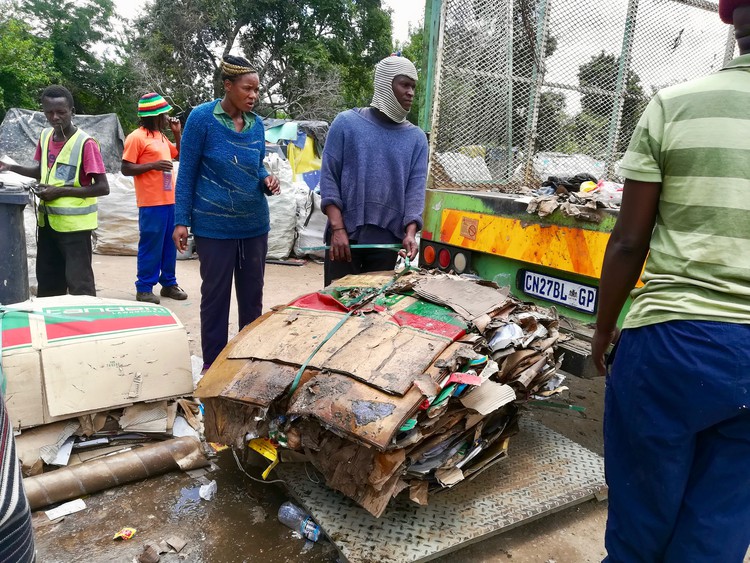“We hope we will be the last generation of waste pickers to face these difficulties”
Government releases guidelines for municipalities to integrate Informal waste pickers into the economy
According to a report by the Council for Scientific and Industrial Research (CSRI), waste pickers are estimated to collect 80 to 90% of discarded packaging and paper in the country. It is estimated that this saves municipalities hundreds of millions in landfill space. Yet waste pickers receive very little for the recyclables they sell.
The Department of Environmental Affairs (DEA) has now come up with guidelines for how municipalities can formally integrate these waste pickers into the waste management system.
The guidelines were presented to local municipalities, private companies, waste pickers associations, civil society organisations, and academics at a workshop in Pretoria on 9 April.
“The Department and the stakeholders developed the draft guidelines to recognise the key role played by waste pickers in the recycling economy, and to ensure that their conditions, incomes and positions in the value chain are improved as the recycling economy is expanded,” said researcher Melanie Samson.
DEA waste management director Dumisani Buthelezi said the first step is to register all waste pickers across the country. He said the department also planned to train enforcement agencies, such as metro police, on the rights of waste pickers because “metro police often abuse waste pickers”.
Another issue waste pickers face is the closure of landfills. Buthelezi said municipalities would work with waste pickers to convert closed landfill sites with buy-back centres and sorting spaces for the waste pickers.
Luyanda Hlatshwayo, a waste picker in Johannesburg, said waste pickers had contributed extensively to formulating the guidelines but he was sceptical about their implementation.
“These plans and policies always happen at a national level, but the officials responsible for the direct implementation do the opposite … We don’t have faith that much will change for the waste pickers on the ground, and even if it does, it will take a very long time,” said Hlatshwayo.
He said many of the plans presented at the workshop were highlighted by waste pickers years ago. “We have been asking the City of Johannesburg to change the bylaws for a long time and it’s only now that they are willing to change them … We are of the view that this is happening because it’s election time,” he said. “But we hope we will be the last generation of waste pickers to face these difficulties.”
Support independent journalism
Donate using Payfast

Don't miss out on the latest news
We respect your privacy, and promise we won't spam you.
Next: Metrorail’s collapse costs those that need it most
Previous: Immigrant-owned shop saved by residents, later looted
© 2019 GroundUp.
This article is licensed under a Creative Commons Attribution-NoDerivatives 4.0 International License.
You may republish this article, so long as you credit the authors and GroundUp, and do not change the text. Please include a link back to the original article.

